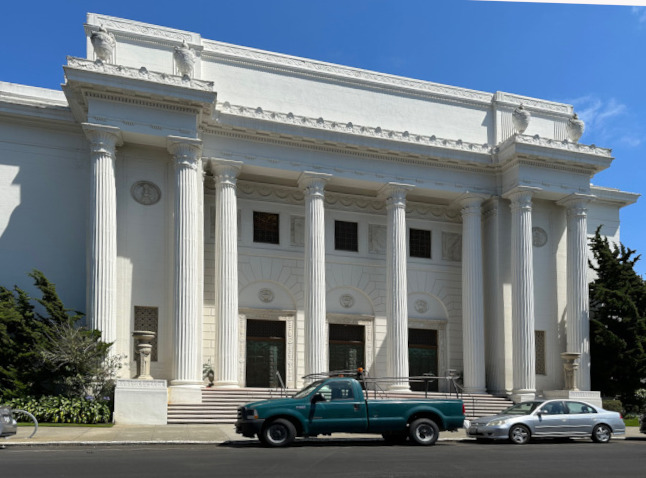
Living, as we all do, in a fog bank of texts, emails, social media updates and more it can seem as Marx put it, that “all that is solid melts into thin air.” Thus, visiting the physical headquarters of the Internet Archive, is somewhat contradictory. Yes, in fact, you can ride the #38r Geary bus to see a website. We forget that the “virtual” things in our lives exist in the real world of servers, cables and cooling systems.
The Internet Archive, founded in 1996, is a “non-profit library of millions of free books, movies, software, music, websites, and more.” I’ve used it many times for research and even built a fence based on images in one of the books contained in their Building Technology Heritage Library. In addition to digitizing books, records and other media they maintain the Wayback Machine which archives a searchable selection of websites.
In 2009 they purchased a massive Christian Science church building at the corner of Funston and Clement in the Richmond district of San Francisco. The paradoxical physical presence of the Archive is as much a story about the virtual as it is about the decline and repurposing of old-school religious institutions but that story will need to be told in another blog post.
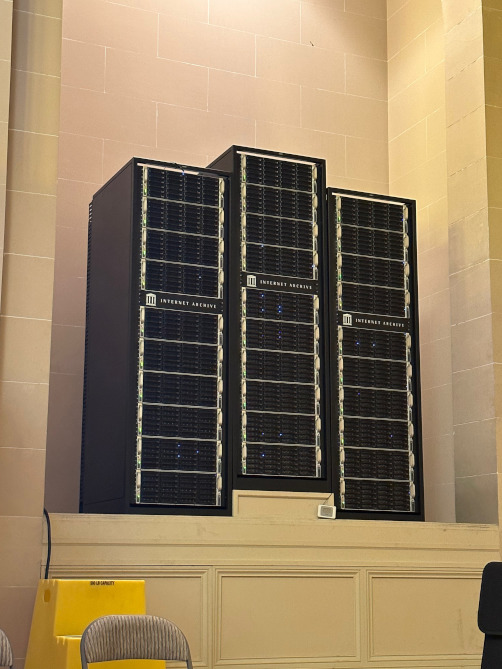

A group of publishers did not agree with this arrangement and sued. The judge agreed and the injunction will remove a significant number of the books they currently lend online. Concurrently, a group of record labels have sued to stop the Internet Archive’s efforts to digitize and make available recordings on 78rpm records. Parsing the dialectical relationship between the value of public domain material and the rights of creators and publishers is beyond my pay grade. Let’s just say it’s complicated and made more so by technology and the huge data models gestating in the, perhaps over-hyped, world of AI.
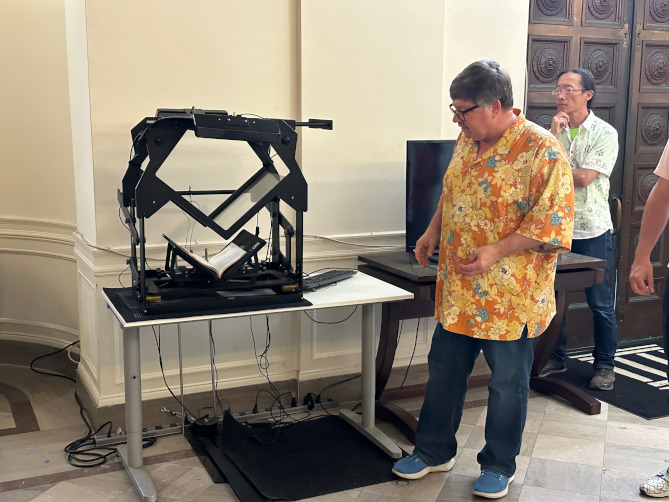
If you come by the archive at 1pm on Friday you’ll get a tour, often led by the founder Brewster Kahle. Kahle was on vacation so our tour was capably led by gentleman whose name I failed to get, unfortunately. After explaining the history of the building, our tour guide showed us the contraption they use to digitize books. He noted that the majority of the books they digitize are sent to the Philippines and digitized with cheaper labor.
You can donate books and other materials to the Archive. They have an app that will tell you if they need a particular item and will sometimes pay for shipping.
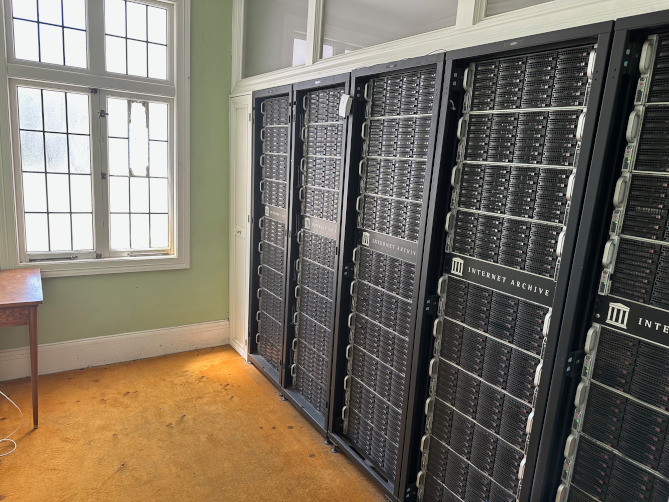
The Internet Archive is a throwback to the heady, more optimistic days of the Internet familiar to those of us older than 50 who can remember things like Mondo 2000 and rave fueled techno-optimism. Everything will be free! Undeniably useful, the Internet Archive contains many, entertaining quirks such as Ted Nelson’s collection of vintage junk mail and their annual celebration of Public Domain Day when materials lapse into free use.
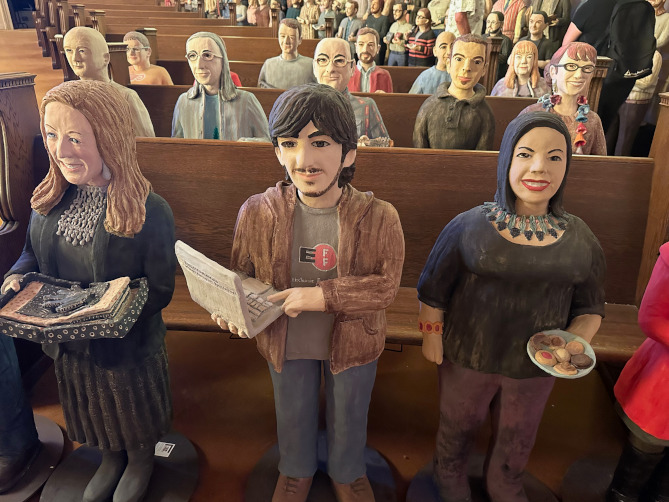
Ceramic installation by Nuala Creed.
If you’re in San Francisco the free tour is well worth it if just to meet the celebrity tech tour guides and the rotating art installations. And you can have lunch afterwards on Clement Street, sometimes known as “the other Chinatown” (I’d add less touristy Chinatown) and then go buy a book at Green Apple if you have lingering copyright guilt.